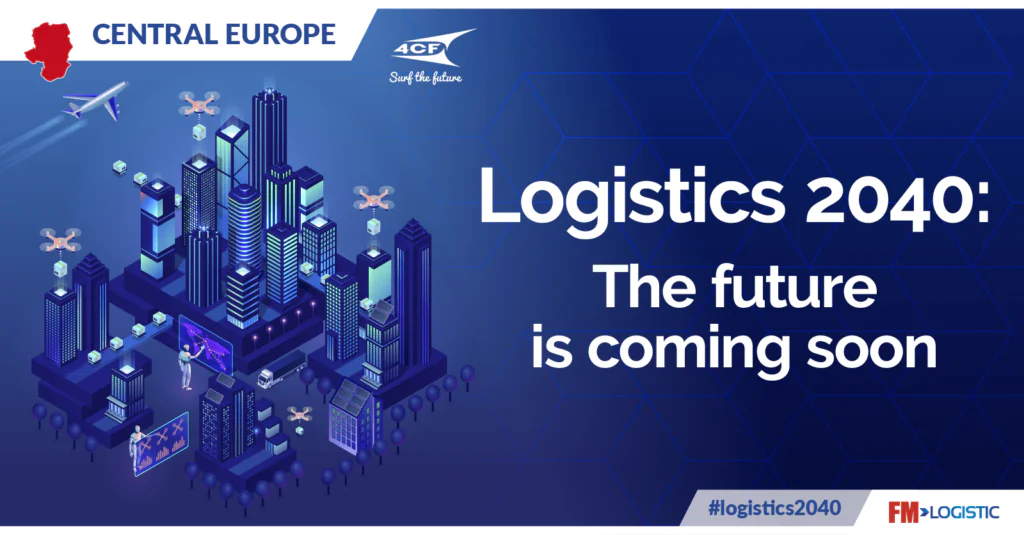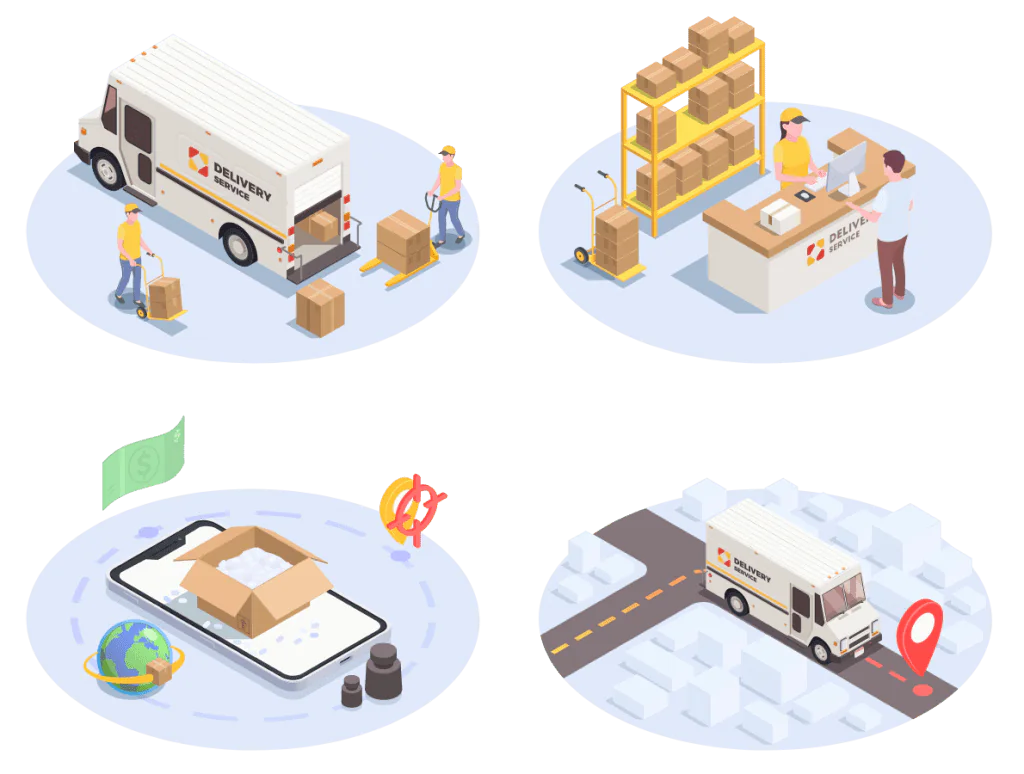Future trends in logistics
It is a well-known fact that the branch of logistics is developing at an electrifying pace. Many specialists create reports and forecasts on the future of logistics. In today’s article, we will take a look at the trends that are often mentioned among those that will lead the TSL sector in the near future. We will focus here on trends where the common denominator is mainly IT systems.

First of all, we would like to draw your attention to the « Logistics 2040 » report, which was created by FM Logistic CE in cooperation with 4CF. The report is the result of thinking and analysis by experts from various fields on what solutions can affect the economy and business. The report makes three predictions for the future. It is not quite justified to call them that, as they involve bold changes in the business models of companies and huge investments. So these are possible variants of the future. Download the full version of the report here.
But moving on to the substance of this article, it’s time to look at future trends in logistics.
Industrial Internet of Things
The Internet of Things has become so popular in industry that it has gained a name in this part of the economy – the Industrial Internet of Things (IIoT). Thanks to its solutions, various devices used in logistic processes communicate with each other using sensors and software, exchanging data. This data is then analyzed on specific platforms. This enables the reduction of failures in industrial processes and contributes to saving time and money. Interestingly, the vast majority of data is produced by machines connected to the Internet of Things and not, as you might think, by people.
Artificial Intelligence
Many companies would like to know the future behavior of the market to react faster to market changes. Artificial Intelligence (AI) makes this much easier. It will also find its application in choosing the optimal route for a truck driver and predicting delivery times. AI is even capable of assigning cargo to a vehicle.
Dr. Bernhard Rohleder said the following: « Logistics is already one of the most digitized business sectors. However, with drones, autonomous systems, and artificial intelligence, logistics will not only face optimization of business processes but a real revolution. » Artificial Intelligence is closely related to automation. It’s only a matter of time before delivery robots and drones deliver packages to our homes. In addition, you’ve probably read more than once about predictions for autonomous trucks. It is also worth mentioning automatic forklifts or robots that can scan goods for their dimensions and weight.
Cloud solutions and Big Data
There are more and more companies that are implementing cloud computing technologies. One of the cloud computing models is Software as a Service (SaaS), an example of which is our EasyCargo truck and container load planning software. With its help, you can not only determine the optimal loading plan and visualize it, but also generate reports and calculate the axle loads of the loading area.
For some time now, we have also been observing the slogan Big Data. The undeniable advantage of cloud computing is its integrity and expansion. Logistics and supply chain management involve many processes that are handled separately. Multiple inventories, shipments, and accounts need to be managed. Cloud computing provides all this on a single platform. Besides, the increasing amount of data being processed promotes more accurate analysis in various software, such as shipment tracking.
Green logistics
Taking care of the environment wherever you look is becoming more and more popular. This is simply due to the imposed regulations, but also due to social pressure. It can be said that taking care of nature is in vogue. Ecology deals with minimizing the undesirable impact of logistics activities on the environment. This concerns, for example, the amount of exhaust fumes emitted or the problem of waste collection. Recycling and recovery programs are increasingly included in companies’ business development strategies. Soon, nobody will be surprised by the replacement of the fleet with electric or autonomous vehicles.
Related to the concept of green logistics is another term – green warehouses. This is a series of environmentally friendly implementation operations aimed at reducing energy consumption, greenhouse gas emissions in the warehouse, etc. Quite often, warehouses are built on so-called « greenfields ». These are areas where the construction has little impact on the surrounding landscape. In addition, reducing the carbon footprint is becoming increasingly important. More and more companies are paying attention to the amount of greenhouse gases emitted.

In today’s article, we have listed only the major changes that await the rapidly growing logistics industry. It is impossible to list them all here. Everything indicates that widespread digitalization, e.g., of processes, is in the best order. Once again, we warmly encourage you to read the « Logistics 2040 » report. It was created in an accessible way, so you don’t need to be a specialist to understand it.




